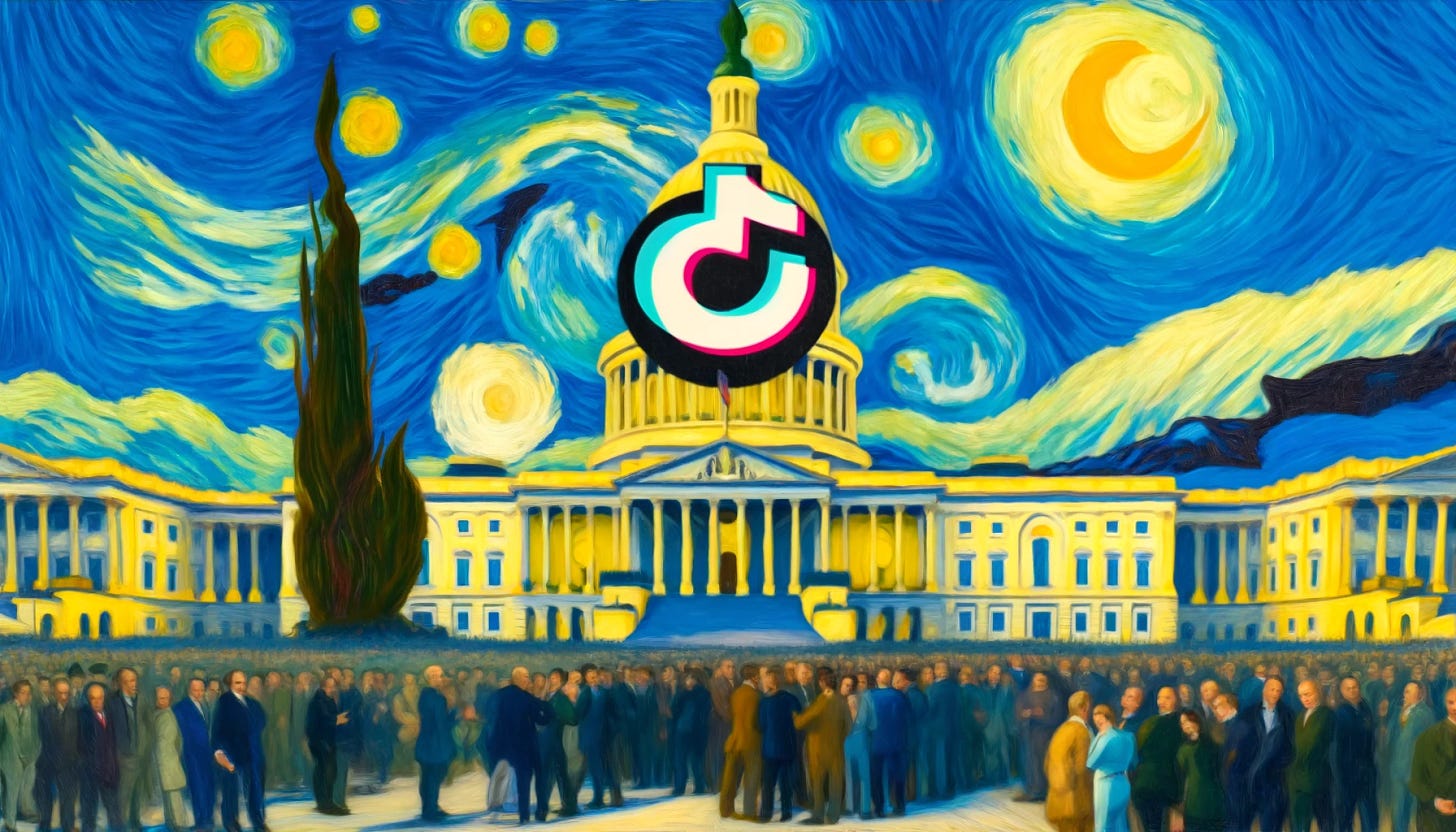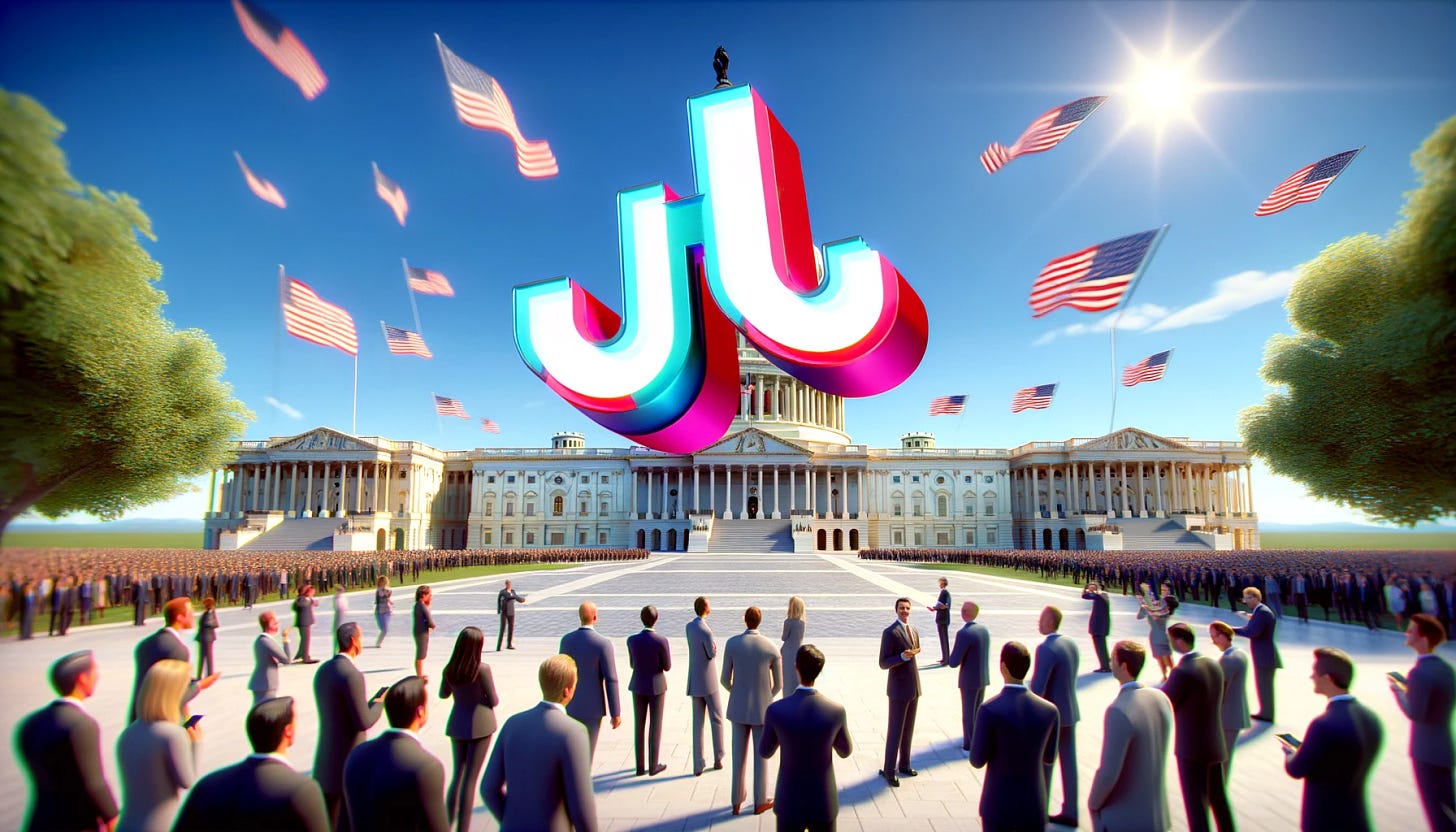US TikTok Ban Signed into Law Amid National Security Concerns
TikTok has to "sell out" or "ship out" before 19th January, 2025, unless its proposed legal challenge succeeds.
Background and National Security Fears
President Joe Biden on late Wednesday (24th April) signed into law a Bill that bans TikTok in the United States, setting the app's nationwide prohibition to begin on January 19, 2025, one day before the end of his current presidency. The legislation's passage came after years of increasing concerns about the social media app's Chinese ownership and potential ties to the Chinese Government. U.S. lawmakers and national security officials were alarmed by the possibility that ByteDance, TikTok's Beijing-based parent company, could share or be compelled to share American user data with Chinese authorities, posing significant security risks.
Legislative Process and Strategy
The road to the ban's passage involved a strategic and secretive approach by a small group of U.S. lawmakers. The process began about a year ago when a handful of Republican and Democratic Members of Congress started discussing a potential ban. Their concerns revolved around national security, data privacy, and the ability of the Chinese government to influence content on TikTok. Representative Steve Scalise, a Republican from Louisiana, was one of the key figures leading the effort, along with Representative Cathy McMorris Rodgers, who heads the House Energy and Commerce Committee.
To ensure the Bill's success, the group kept the discussions under wraps to avoid alerting TikTok's lobbying efforts. They worked closely with the Department of Justice, the National Security Council, and other experts to craft a Bill that could withstand expected legal challenges. The key to passing the legislation was gaining bipartisan support, which was achieved through briefings on the national security risks posed by TikTok's Chinese ownership.
ByteDance Given Time to Sell TikTok
The legislation, signed into law on April 24, 2024, provides ByteDance with a nine-month grace period to divest its ownership of TikTok. If ByteDance does not sell the app within this timeframe, TikTok will be banned nationwide, effective January 19, 2025. This built-in delay allows TikTok to explore options to remain in the U.S. market while addressing security concerns. The deadline may be extended by 90 days if significant progress is made toward a sale.

TikTok's Response and Legal Challenges
TikTok's CEO Shou Chew announced in a video posted on the platform that the company intends to challenge the ban in Court. Chew expressed confidence in TikTok's ability to defend its position, citing the company's previous legal victories, including a 2020 ruling that blocked then-President Donald Trump's proposed ban. He emphasized TikTok's commitment to fighting for its users' rights, stating, "We aren't going anywhere."
TikTok's Impact on Social Media and Generation Z
TikTok revolutionized how Generation Z interacted with social media and the internet, introducing a new format of short, engaging videos that captured their attention. This shift resulted in the emergence of countless TikTok stars and influencers who quickly became rock stars in their domains, amassing millions of followers. While other social media platforms might rush to fill the gap left by a potential ban, it will be nearly impossible to carry over or migrate TikTok's enormous user base to a new platform. The socio-economic and psychological impact of this transition could be significant, affecting not only individual creators but also the broader social media ecosystem. However, the full extent of these changes will only become clear if and when the ban is enforced.
India's Ban in 2020 and International Reactions
The U.S. ban follows India's decision to ban TikTok and other Chinese apps in 2020, citing national security and data privacy concerns. India's move was part of a broader trend of countries scrutinizing Chinese technology companies and their potential links to the Chinese Government.
The new U.S. law has already sparked international discussions about data security and the regulation of Chinese tech companies. Beijing has criticized the U.S. ban, suggesting that it could lead to reciprocal measures against American businesses operating in China. This raises concerns about a potential escalation in U.S.-China trade tensions.
The Path Forward and India's Potential as a Beneficiary of U.S.-China Tensions
The TikTok ban in the United States, along with the expected legal battles and broader implications for U.S.-China relations, could impact the global business landscape. As the U.S. considers stricter regulations on technology with foreign ownership, there is a risk of escalating trade disputes and retaliatory measures. This potential tug-of-war between the U.S. and China could lead to restrictions on U.S. companies relying on Chinese manufacturing or targeting the Chinese market.
In this context, India stands to benefit if it can strengthen its regulatory framework and dispute resolution mechanisms. By creating a more business-friendly environment, India could attract companies seeking to diversify their manufacturing bases or expand beyond China. This shift could boost India's economy, increase foreign investment, and position the country as a key player in the global technology and manufacturing sectors.






